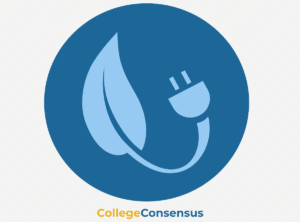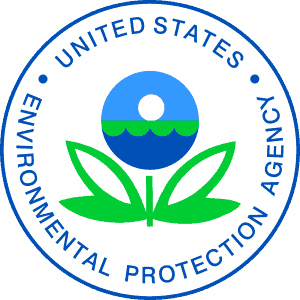
You love the environment. You want to do your part to ensure that it remains as protected as possible for generations to come. Maybe you’re already active by volunteering with green organizations. Or maybe you’re just getting into the idea of building a career that allows you to do your part to conserve natural resources. You will discover working in conservation can be an exciting, fulfilling path.
There are many different ways that you can work towards conserving the Earth. Conservationists work in the political and scientific fields. They also work in manufacturing, and educational fields. These are only some of the available careers. More and more, organizations are realizing the importance of giving back to the health of the planet. They’re hiring people in the conservation field to do exactly that.
This field is growing rapidly. It’s nice to know that there are opportunities for conservationists in both large cities and small, rural areas. While the types of opportunities may differ, people and organizations around the country are beginning to understand the reality of what’s happening to our planet. More people than ever are working to do their part to ensure a healthy planet for future generations.
Here, we’ll explore what conservationists do, the types of online degrees available, and how you can get help paying for your education.
Most Popular Schools with Online Conservation Degree Programs
Top Paying Industries for Conservation Jobs:
| Industry | Annual mean wage (2) |
|---|---|
| Business, Professional, Labor, Political, and Similar Organizations | $100,520 |
| Scientific Research and Development Services | $88,050 |
| Grantmaking and Giving Services | $81,180 |
| Federal Executive Branch (OES Designation) | $79,610 |
| Colleges, Universities, and Professional Schools | $73,090 |
Most Affordable Online Conservation Degree Programs
What Do Conservationists Do?
There is good news if you’re interested in working as a conservationist. There’s a good chance that you’ll have a solid say in answering the question, “what does a conservationist do?” Many companies and other organizations are beginning to realize the importance of conservation. In hiring a conservationist, companies look to you to develop initiatives and strategies. These help protect the Earth. They’ll look to you to develop your conservationist job description in the best way possible.
As a conservationist, it’s key to stay on top of developments in environmental research. That is your answer to the question, “what does a conservationist do?” They work to effectively meet the ever-changing needs of the planet.
A conservationist job description can include several tasks, such as:
- Develop sustainability initiatives that allow organizations to positively impact the environment, or offset actions that harm the environment.
- Educate children, students, and/ or adults on how the can positively impact the Earth.
- Work with policy developers to provide insight and guidance on how to create Earth-friendly standards. They develop public and private sector initiatives and projects.
- Evaluate company or organizational practices, provide guidance on how to become more green-friendly.
- Evaluate natural areas, develop strategies and guidance on how to improve the environmental health of the area.
The job description of a conservationist can change from day to day, depending on your employer and the current needs of the environment. Continuing education is a key part of working as a successful conservationist. This allows you to continually stay up to date on what the environment needs. It allows you to positively impact the policies and programs designed to help keep the environment safe.
How Do I Become a Conservationist?

If you’re interested in how to become a conservationist, it’s likely that you’re already active in protecting the environment. You have a sense of what’s going on with the current state of Earth’s health. When you’re researching how to become a conservationist, you’ll first want to decide on a specialty area.
Some conservationists choose to specialize in preserving and protecting certain areas like beaches. Others choose to focus on a specific species of animals or plants. Many conservationists focus on educating children on how to protect the environment. Others choose to work with large corporations to help them reduce their carbon footprint.
Pursue a Conservation Degree
There are many paths to choose. You can start by earning your degree in environmental science or sustainability. You may pursue conservation biology or another related field. Some students are already sure of the specialty path they want to take. It may make more sense for some to pursue an online education in wildlife sciences or marine biology. Students can study botany, geology, or another field related to your career path.
Going to school and getting a degree is important. It is part of becoming a professional conservationist. It’s important to dedicate some of your time toward connecting with nature and helping the Earth. Many people go into the field of professional conservation. They enjoy volunteering their time for causes that benefit nature. Some like working with political groups to lobby for environmental regulations. Workers participate in natural area clean up efforts. Some work with children to help them understand how they can do their part to protect the planet.
While some students choose the traditional route for education, an increasing number of students are pursuing online programs. Pursing a degree offered online has many benefits:
- Students are not restricted to attending a college nearby.
- Students can gain education and professional experience at the same time.
- Students can choose when and where to devote time to their studies.
What Can You Do with a Conservation Degree?
There are many conservation degree jobs for college graduates who are ready to put their knowledge to good use for the planet. Conservation degree jobs can vary widely and can change depending on the needs of the Earth. Let’s take a look at some of the different employment options for people who have a conservation degree.
What jobs can you get with a wildlife conservation degree?
Conservation Career: Wildlife specialist
These professionals work in a designated area of wildlife management. They ensure that wildlife are safe in their environment. You may specialize in taking care of a particular type of wildlife, such as birds or aquatic animals. You’ll likely work with organizations whose business activities affect the land inhabited by the animals. You may work to promote conservation and the maintenance of a healthy environment.
Conservation Career: Environmental educator

As an environmental educator, you may work for a nature center. Some work with government agencies, a non-profit, or a zoo. Environmental educators work with organizations that prioritize the well-being of wildlife. In this position, you’ll develop and lead programs for children and adults. They learn more about what they can do to contribute to a healthy environment for animals.
Conservation Career: Fishery manager
If you decide to specialize in working to protect aquatic animals, you may find that you enjoy working to manage a fishery. This wildlife management position combines leadership skills, wildlife biology, and supply chain management. Fishery managers not only study the life cycle and ecology related to these aquatic wild animals, they also research the environmental challenges related to their survival.
Conservation Career: Park ranger
Working as a park ranger can be a fantastic opportunity. People with a wildlife conservation degree enjoy spending time in the outdoors. The day to day work of a park ranger can change drastically with the seasons. Park rangers work to protect animals and keep the environment clean and safe. They help visitors get the most out of their time at local, state, or national parks.
Conservation Career: Research specialist
A research specialist works to understand and study what types of conditions are best for wildlife. They work to create those conditions in nature. A research specialist can work to study a general natural area or may focus on one type of species. Working in research can be an excellent entry level position. Many online students find that working in a research lab is a great part-time position. They work through it as they complete their graduate studies. There are many degree fields for students to study: conservation biology, wildlife conservation, or environmental science, to name a few.
What jobs can I get with a general conservation science degree?
A general conservation science degree provides you with a broad understanding of many areas of conservation.

Conservation Career: Agent for the Environmental Protection Agency (EPA)
A general conservationist can be a great fit for EPA work. This is one of the top government agencies to work for to ensure that companies and other organizations operate in a way that is safe for the planet. If you’re interested in the law and the environment, working for the EPA can be a great fit.
Conservation Career: Sustainability consultant
A sustainability consultant often works on a contract basis or may work for several different companies at one time. As a sustainability consultant, you’ll examine the workings of a company. You may determine how they can change to become more environmentally friendly.
Conservation Career: Project manager
After getting an education in general conservation or natural resource management, you may choose to work for a company that develops and implements sustainability initiatives. Working as a project manager requires excellent leadership and organizational skills, and can be the perfect way to combine your love for creating and developing initiatives that help the environment with your love of working as a part of a team.
Conservation Career: Environmental science teacher or professor
Many high schools are beginning to offer environmental science classes. These classes have long been a staple at universities. Working at the high school or college level can be a rewarding way to share your passion for the environment that will also impact the next generation.
Now, we’ll take a look at the different degree options in the field, helping you begin to develop a plan for how you’d like to progress through your education.
Degree Types: Associates, Bachelor’s, Master’s, Doctoral
There are many types of fields and specialities in the conservation realm. Depending on interests, students can pursue studies in:
- conservation biology
- natural resources
- wildlife conservation
- wildlife management
- environmental sciences
- life sciences
- resource management
- environmental sustainability
- environmental management
- wildlife ecology
- behavioral ecology
- climate change
There are also several different degree level options for students who are interested in earning a degree in conservation. Understanding each of these levels (and the time required to complete the degree) is an important part of deciding what educational path you’d like to take.
Online Associate’s Degree in Conservation
A two-year degree, an online associate’s degree in conservation or environmental sciences, allows you to get your start in the sustainability field. At this level, you may work in conservation while also taking online courses to earn your degree on weekends or in the evenings. An associate’s degree will give you insight into the work that needs to be done to keep the planet clean and safe for generations to come.
Online Bachelor’s Degree in Conservation

This four-year conservation online degree is what you’ll need to qualify for many conservation career fields. After you earn your online conservation degrees, usually a bachelor of science, you’ll be able to work as a consultant, an environmental educator, natural resource manager, or in a number of other fields.
Many choose to earn their conservation degrees online while also working full-time. This flexible option makes it easier to get your degree while still advancing in your career.
Online Master’s Degree in Conservation
A two-year online conservation master’s degree sets you up to become a leader in your field and qualifies you to teach at the university level. Earning a conservation master’s online may offer you the unique opportunity to choose a specialty area, allowing you to become an expert in your area of interest. Taking online courses will offer students the opportunity to immediately apply what they are working on in their full-time job.
Online Doctoral Degree in Conservation
Earning a conservation science PhD online is an exciting pinnacle to your academic career, and will leave you well suited to teach and supervise at the university level, run research labs, develop company-wide sustainability initiatives, and more. When you earn your PhD in conservation biology online, you’ll become one of the trusted experts needed in the industry when it comes to helping companies and other organizations make the transition to green business.
Accreditation
It’s important that the school you choose for your conservation degree is accredited by a regional or national organization. Accreditation means that the school has been vetted as a legitimate academic program with quality education, and is an important part of having your degree respected and understood by future employers.
The main thing to look for in an online degree is the accreditation of the university or college. In the U.S., the most prestigious education entities, private and public, hold a regional accreditation. There are some schools that hold national accreditation, but this accreditation is not as prestigious.
Conservation Certifications and Licensure
Earning a conservation certificate online can be an exciting way to get your foot in the door in the world of conservation. These certifications can be advantageous at every point in your educational journey: before pursuing a degree, during your program studies, and even after graduation.
Conservation certificates can be ideal if you’re not sure whether you want to make a career as a conservationist but are interested in learning more about this field of study. Earning your online conservation certificate can also prepare you to take on conservation or sustainability initiatives within your company.
Pursuing a certificate during or after your degree studies can help you specialize in your field. Would you like to pursue study in wildlife conservation, business sustainability, or conservation building initiatives? A certificate can be a great addition to your studies.
If you’re thinking about earning your online conservation certificate to help you advance at work, talk with your employer about whether they offer tuition reimbursement or tuition assistance to help cover the cost of your education.
Conservation Scholarships

There are many scholarships for conservation students, including:
- ABC Humane Wildlife Control & Prevention, Inc. Academic Scholarship
- Colonial Agricultural Educational Foundation Scholarship
- National Wood Flooring Association Education & Research Foundation Wood Studies Scholarship
If you’re not sure how to afford your conservation education, be sure to talk with your school’s financial aid office. Many schools offer competitive financial aid packages (that may include loans, scholarships, and grants) that can make it easier to get your education by lowering your out of pocket costs.
The field of conservation is wide. If one of the exciting career paths are in your future, take some time to figure out of a degree program or certification is in your future. The needs are many in this sector, now you get to find your path. Good luck!
Related Rankings:
Best Online Master’s in Sustainability Studies
Best Online Bachelor’s in Sustainability Studies
Best Online Associate’s in Sustainability Studies
Best Online Sustainability Studies Graduate Certificates
Best Online Master’s in Environmental and Sustainability Management
Top 25 Green, Sustainability, and Alternative Energy Careers